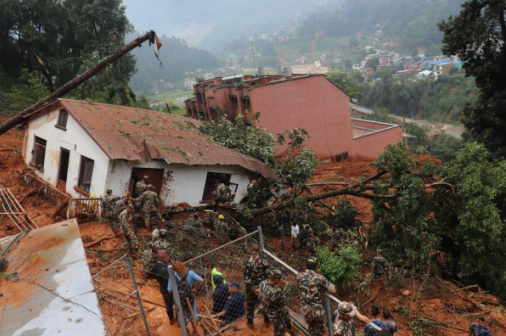
The Leprosy Mission's flagship hospital in Nepal has been crippled after record levels of monsoon rains triggered landslides.
Anandaban Hospital is the main facility of The Leprosy Mission in Nepal and is located in the southern Lalitpur district.
The main hospital building has been spared but the surrounding land has severely damaged by a landslide that swept away trees and other buildings, destroying the borewells that provide the hospital's water supply. As a result, the hospital has only two days of stored water left.
Access to the hospital has also been cut off because of damage to roads by the unprecedented rainfall - the worst to hit Nepal in half a century.
Roads have turned into rivers or been swamped by mud, making it nearly impossible to bring in essential supplies without the help of the army.
With food and water supplies dwindling, the situation for patients is becoming increasingly dire and Leprosy Mission fears that expected rainfall in the coming days will exacerbate the crisis. The charity is preparing for the possibility of evacuating patients but says it is struggling to find a safe place for them.
Louise Timmins, Head of Fundraising for The Leprosy Mission, said the devastation caused by the landslides is "heartbreaking".
"Power is intermittent but from what communication we have had over WhatsApp, we know that the team are on their knees," she said.
"The main hospital building is thankfully unscathed but is currently unreachable. Water and food supplies are running dangerously low.
"It is now looking increasingly likely that the patients will have to be evacuated to safety. But we don't know where to, or even how this is possible. Worryingly, further rain is forecast which could hinder any progress made."
The landslides have left at least 200 dead in the region, with many more people unaccounted for. Timmins said that the landslide is the greatest challenge the hospital has ever faced after surviving the 2015 earthquake and forest fires earlier this year.
Timmins reflected on the hospital's significance, saying, "Anandaban Hospital is such a special place. For decades it has been a beacon of hope to so many patients affected by leprosy.
"For many it is only the only place they are loved, accepted and cared for free of charge. The area surrounding the hospital is very poor. Anandaban Hospital is the only place where many thousands of people can get medical care."













